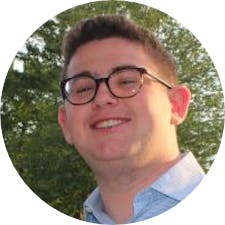The Emory University Senate Executive Committee is forming a new subcommittee, the Open Expression Subcommittee, to review and potentially revise the current Respect for Open Expression Policy. Plans to amend the policy have been in talks since Dec. 2023, but the spring semester’s on-campus pro-Palestinian protests emphasized the need for change, according to Student Government Association (SGA) Ranking Member Sohan Bellam (26C). More recently, Fenves codified an addendum to the open expression policy that prohibits encampments on Emory property, among other restrictions.
University Senate President-Elect Noëlle McAfee said the subcommittee, which is still being formed, will include all members of the Senate’s Executive Committee and the three most recent chairs of the current Open Expression Committee. Additionally, Emory College of Arts and Sciences Senate President-Elect Clifton Crais, Emory University Law School Associate Dean of Students and Academic Programs John Acevado and an alumni representative from the University Senate will also sit on the subcommittee.
McAfee and Crais alleged that the University’s administration violated the open expression policy on April 25 when the administration called law enforcement to respond to the encampment on the Quadrangle. McAfee added that the administration's actions on April 25 exposed the weakness of the policy.
“The last thing to do is to terminate a protest,” McAfee said. “You don't terminate a protest if it's not violating any of the rules, and it wasn't violating rules. They terminated the protest, so this has been a mess.”
McAfee added that the administration’s decision to issue the new addendum the day before classes started created a “further mess.”
Bellam also said that the protests in the spring made the need for a new policy clear. As a member of both SGA and the new subcommittee, Bellam hopes to bring student voices to the discussion.
According to Crais, revision of the current policy is necessary as it is “excessively technical” and “hard to understand.”
“For the general person – who is not a lawyer, is not a PhD in political science or a specialist in issues around protest – it's simply a lot to manage,” Crais said. “It’s just too cumbersome.”
McAfee said that a revised policy should not allow for unlimited free speech, instead suggesting a “content-neutral” standard that allows most speech, even when abhorrent, but has clear restrictions.
“Free speech is not unlimited,” McAfee said, referencing the First Amendment’s restrictions on some speech.
Crais expressed hopes that future revisions to the policy will push students to engage in disagreement and debate in the name of the pursuit of knowledge, so long as demonstrators avoid threatening property or people.
In addition, Crais said he has noticed a new anxiety among his students regarding their ability to freely express themselves on campus and hopes a revision can reverse this worry.
“There is considerable anxiety from students, about what they can do and what they can't do, and more seriously, that they may be punished for things that look like they are permissible,” Crais said.
McAfee confirmed that the new subcommittee will begin meeting in the coming weeks and predict a 60-day period to review the current policies. If the reviewing period concludes that the policy needs revisions, the University Senate will then vote.

Jacob Muscolino (he/him) (28C) is a News Editor at The Emory Wheel. He is from Long Island and plans to major in History and Psychology. Outside of the Wheel, he is involved in Emory Reads and Emory Economics Review. You can often find Jacob watching the newest blockbuster for his Letterboxd, dissecting The New York Times and traveling to the next destination on his bucket list.








